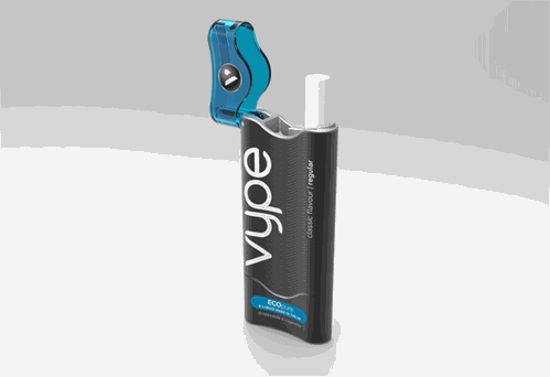States have varying regulations regarding whether a vape shop can be open during the Covid-19 pandemic shutdown. Please note: this list only represents how Vapor Voice has interpreted the law and should in no way be considered a legal authority. Please email any false or updated information to timothy@vaporvoice.net. This list is updated regularly.
Alabama — Vape shops are not on the list of essential businesses or those that must shut down. They may remain open through curbside pickup, delivery, remotely, or any other method that does not involve a customer entering its building provided that the business takes all reasonable steps to ensure a consistent six-foot distance between persons.
Alaska — The governor ordered all non-essential businesses to close as of March 28 at 5 p.m., though vape shops are not mentioned. There is a provision that says all other businesses that can maintain social distancing requirements and prohibit congregations of no more than 10 people in the business at a time, including employees, would appear to be allowed to remain open.
Arizona — While they are not defined as essential services, there has been no directive to close vape shops.
California — The governor directed all residents to stay at home as of March 22 unless they are designated as an “essential critical infrastructure worker.” Los Angeles County’s Public Health Department has explicitly said that tobacco and vape shops should not be open to the public.
Colorado — The state said that vape shops are to be closed from March 17-April 30. Marijuana dispensaries are considered essential.
Connecticut — All non-essential businesses have been directed to prohibit in-person functions, with vape shops not included on the list of essential businesses. The governor recently extended the closure order through at least May 20.
Delaware — Vape shops are not cited as an essential business, and a list published by the state would indicate that they would in a group of “other miscellaneous store retailers” that are not to remain open. Residents have been directed to stay at home until at least May 15.
District of Columbia — Non-essential businesses have been ordered to close through at least May 15, though vape shops are not explicitly mentioned on a list of businesses that must close.
Florida — Now open in most counties.
Georgia — Now open in most counties.
Hawaii — Vape shops are not explicitly defined as essential businesses, and residents have been directed to remain at home except to engage in essential activities, businesses and operations. Curbside service and delivery seem to be allowed, currently.
Idaho — The state’s list of essential businesses doesn’t include vape shops, though as of April 15, any business, facility or service can operate via curbside or delivery services. Businesses must continue to maintain social distancing requirements for both customers and employees, including prohibiting any congregation of customers or employees in or around the place of business.
Illinois — The governor ordered that all non-essential business and operations must cease, aside from minimum basic operations. Vape shops retailers are not specified as being an essential business.
Indiana — Vape shops are not deemed to be an essential business, but they are allowed to conduct business, though it must be restricted to online or call-in ordering with delivery or curbside pickup. Businesses must also comply with social distancing and sanitation of applicable areas and other mitigation measures to protect its employees and the public.
Kansas — The governor has directed all residents to remain at home except for essential activities, which are defined by the Kansas Essential Functions Framework (KEFF). Vape shops retailers are not specified on that list.
Kentucky — The governor directed all non life-sustaining businesses to stop operating in-person services as of March 23 at 8 p.m. Vape shops were not specified on the list of businesses the state deemed essential, which would seem to put them in the category of “miscellaneous store retailers” and thus not allowed to be open as usual. However, non-essential retail businesses, while they cannot allow Kentuckians into stores, can still fill phone and online orders through curbside services or delivery.
Louisiana — Vape shops are not listed as part of the list of essential infrastructure. As such, vape shops are ordered to have no more than 10 people in a business at any given time.
Maine — Maine defers to the CISA list. If a vape shop is considered “non-essential” then it may remain open but it must not allow in-person contact and may not have more than 10 workers in a space.
Maryland — Vape shops are not listed on the state’s list of essential businesses. The state no longer allows non-essential businesses to offer curbside pick up.
Massachusetts — Vape shops are not listed on the state’s list of essential businesses. It seems likely they could allow for curbside pick up or delivery so long as customers do not enter the stores.
Michigan — Gov. Gretchen Whitmer specifically mentioned that vape shops must close in relation to an earlier stay-at-home order. The current order has been extended through the end of April.
Minnesota — Minnesota is one of a few states that has explicitly ordered vape shops closed. More specifically, the state’s list of essential businesses does not cover “workers supporting tobacco and vaping-product shops.”
Mississippi — Vape shops are not listed in the state’s list of essential businesses, as such, they are required to close except for minimum operations.
Missouri — Missouri defines essential businesses as per the CISA list. It has ordered all businesses that are less than 10,000-square-feet to reduce the number of patrons to no more than 25 percent of is limit as per the fire or building code. For businesses larger than 10,000-square-feet that restriction is set at 10 percent.
Montana — Vape shops are not listed on the state’s list of essential retail businesses, as such it seems likely the state has ordered them closed outside of minimum basic operations, which does not include delivery or curbside pick up.
Nevada — All non-essential businesses, including casinos, are closed. Effective until April 17, 2020.
New Hampshire — Vape shops are not listed as an essential retail business and as such must be closed except for curbside and delivery operations. Of note, on-site cash transactions are not allowed.
New Jersey — Vape shops are not listed on the state’s list of essential businesses that remain open and as such must close to the public, curbside pick up and delivery are able to remain open.
New Mexico — Vape shops must close completely. The state’s order does not define a vape shop as “essential” and anything not deemed essential must reduce “the in-person workforce at each business or business location by 100%” effectively rendering them closed.
New York — All places of public amusement are outright banned. The state does not list vape shops as part of its essential businesses, likely meaning that a store would need to ask the state if it could be deemed as essential to remain open. Non-essential stores may remain open for delivery or mail order business, however, they are only permitted to have one employee present at the business at any given time.
North Carolina — Expected to open on May 22.
Ohio — Now open.
Oklahoma — The governor has issued a “safer-at-home order” that applies to “vulnerable populations,” but Oklahoma has not implemented a statewide order similar to other states. Vape shops presumably can remain open and operate normally.
Oregon — Vape shops are not mentioned. As such, they are likely to remain open so long as they implement social distancing practices.
Pennsylvania — The Department of Community and Economic Development has stated that vape stores must close though at least one vape store was told the opposite.
Rhode Island — Vape shops are not listed on either the specific list of businesses that can remain open or must close per the Department of Business Regulation. Stores that offered food or drinks would be explicitly allowed to stay open. If vape shops are classified as non-critical, then the stores are permitted for both curbside pick up and delivery operations.
South Carolina — Vape shops must adhere to the state’s social distancing requirements.
Tennessee — Vape shops may remain open for to-go orders so long as there are no more than 10 people—including customers and workers—on the premises at any given time.
Texas — Vape shops are not explicitly mentioned in the governor’s order. Vape shops are allowed to continue with mail-order businesses.
Utah — Has not issued any sort of statewide restrictions.
Vermont — Vape shops are not listed as an essential business and as such must “suspend in-person business operations” but are able to do curbside pick-up and delivery.
Virginia — Vape shops may remain open but they must adhere to the state’s social distancing requirements including not allowing more than 10 patrons in the store at any given time.
Washington — Vape shops in Washington can remain open for to-go orders but they would need to offer food products for sale.
West Virginia — West Virginia’s order does not explicitly list vape shops on either the list of businesses that can remain open or ones that must close.
Wisconsin — Vape shops are not listed on the state’s informal list of retail businesses that can stay open. The official order would allow for mail-order operations and potentially carry out orders.
Wyoming — Has not issued any sort of statewide restrictions.






















